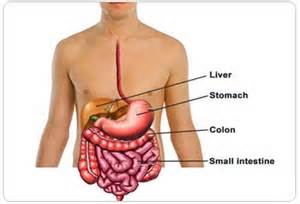IBS – Irregular Bowel Syndrome

|
Seneca |
The US Department of Health and Human Services reports that up to one in five Americans has irritable bowel syndrome (sometimes also called “spastic colon”), and 75% of them are women. Irritable bowel syndrome (IBS) is a functional disease, that is, a disease in which the intestine (bowel) functions abnormally. The term, irritable bowel, is not a particularly accurate one since it implies that the bowel is responding irritably to normal stimuli.
IBS is best described as a functional disease. The concept of functional disease is particularly useful when discussing diseases of the gastrointestinal tract. The concept applies to the muscular organs of the gastrointestinal tract; the esophagus, stomach, small intestine, gallbladder, and colon. What is meant by the term, functional, is that either the muscles of the organs or the nerves that control the organs are not working normally, or, as a result, the organs do not function normally. The nerves that control the organs include not only the nerves that lie within the muscles of the organs but also the nerves of the spinal cord and brain to which they are connected.
Your bowel, or gut, extends from your stomach to your anus. It is made up of the small intestine and the large intestine. Their job is to process food from the stomach. The small intestine absorbs nutrients from food and passes undigested food into the large intestine. In the large intestine, or colon, this waste product is processed into feces. The normal bowel moves food along the intestines through muscular contractions, known as propulsion. There are also areas of hold-up, known as segmentation. This combination of propulsion and segmentation is called peristalsis. You are completely unaware of it when it is working normally. The control of peristalsis is complex.
The best way to regard IBS is as a loss of coordination of these muscular contractions. In addition, there's evidence that people with irritable bowel syndrome have increased sensitivity within the gut to external stimuli, such as stress. This means IBS is often the outcome of a complex interaction between psychological and physical factors. A disorder of the digestive system can affect the gut anywhere from the mouth to the anus, which accounts for the diversity of symptoms seen in IBS.
causes, symptoms and 8 steps
that naturally prevent and improve your IBS.











